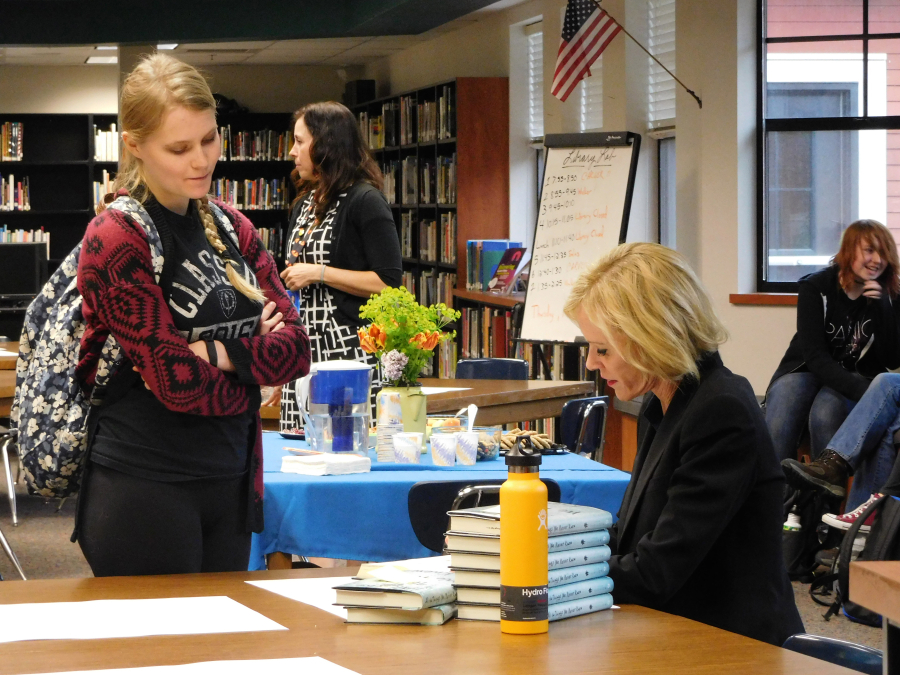“Mindfulness and meditation get a bad rap but they can help you challenge the negative ways you see yourself,” she told the students. “Sleep is also crucial, and exercise has been found to be just as effective, if not more, than SSRIs.”
Hamilton believes awareness is crucial in diagnosing and treating mental illness.
“Sometimes, you don’t know something is wrong because you think the person is just acting like a real A-hole,” she said. “People can become impatient and irrational, and the smallest things, like traffic or bright lights, can set them off. In my husband’s case, he stopped going to work, then he began exploding in anger in front of our daughter, who was 9 years old. At that point, I thought my marriage was over because I didn’t want her to grow up in a home like that. He told me that he was fine, and it was me who was the problem. I missed the fact that he was very, very ill.”
After the assembly concluded, the students were given an opportunity to ask questions. These included where to go for help if a friend is suicidal, options available for seeking help, and how long it takes to recover from the suicide of a loved one.
Hamilton also met with students for one-on-one conversations and book signing.
Tera Yano, child and family therapist, and Denise Livingston, prevention-intervention specialist, were also on hand to answer questions and lend support.
Hamilton’s visit came through an association with WHS teacher Jim Reed, and an invitation by the WHS Keepers of the Library club.
“Her experience is relevant for students today,” Reed said. “Her intimate story fits together with our class discussions on mental illness and societal issues surrounding the disease such as incarceration and health care.”


